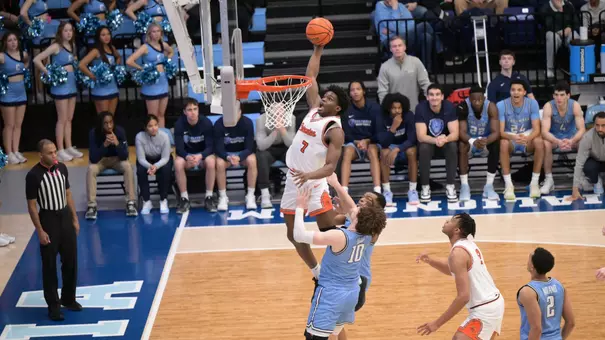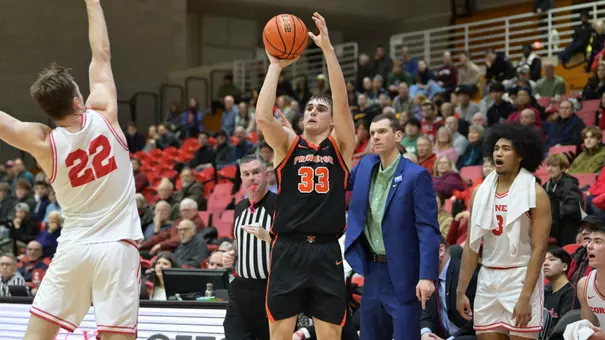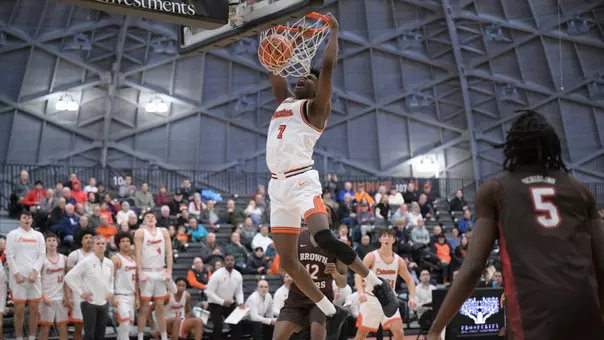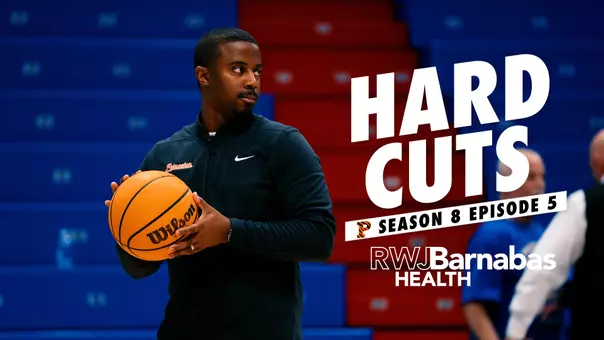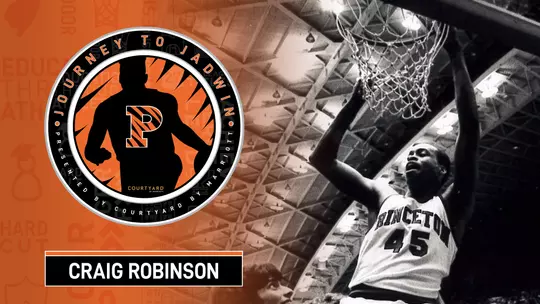
Journey to Jadwin - Craig Robinson
5/21/2020
Since the Ivy League Player of the Year award was introduced for men's basketball in 1974-75, only six players have won it twice. One of those players is Craig Robinson '83, who helped the Tigers win three Ivy League titles and a pair of NCAA Tournament games. He learned powerful lessons on character and courage early in his Journey To Jadwin that he has carried with him and applied for the rest of his life.
Robinson was born in Woodlawn, Illinois, a suburb of Chicago then moved to South Shore, Illinois, when he was three. Robinson kept a home there through and after Princeton and his mother only recently moved out of the area.
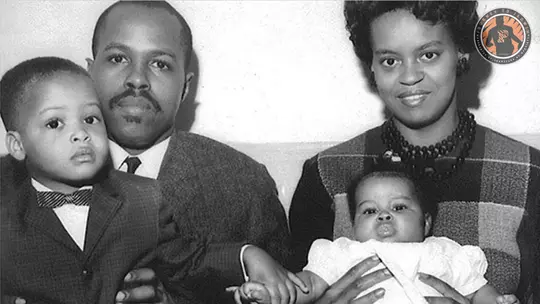
Despite all he would go on to achieve, Robinson did not grow up dreaming of going to Princeton and neither of his parents attended college. His father, Fraser Robinson III, worked for the City of Chicago as a stationary fireman at a water filtration plant and his mother, Marian Robinson, was a homemaker up until his sister, former First Lady of the United States Michelle, went to high school. She then worked as a secretary at a bank.
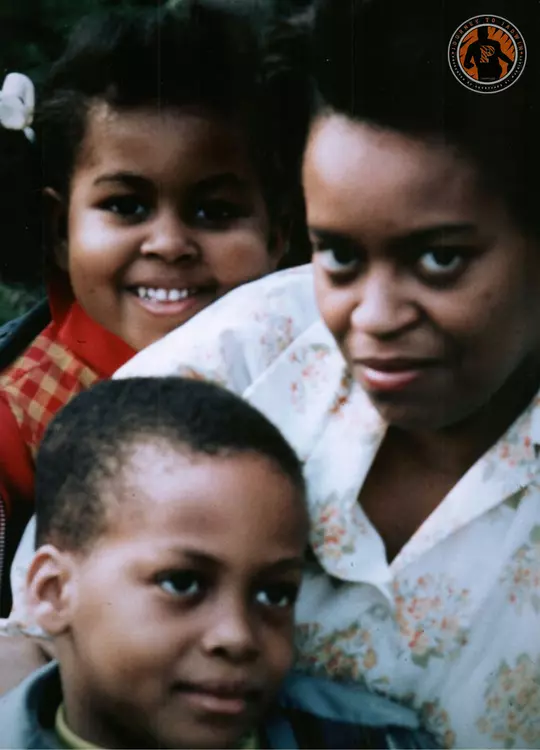
Robinson’s first basketball role model was none other than his father. The Robinsons would vacation in Michigan at a place called Dukes Happy Holiday Resort and it was here where he would first pick up a basketball. Robinson remembers his father being on the court with him when he shot a ball for the first time.
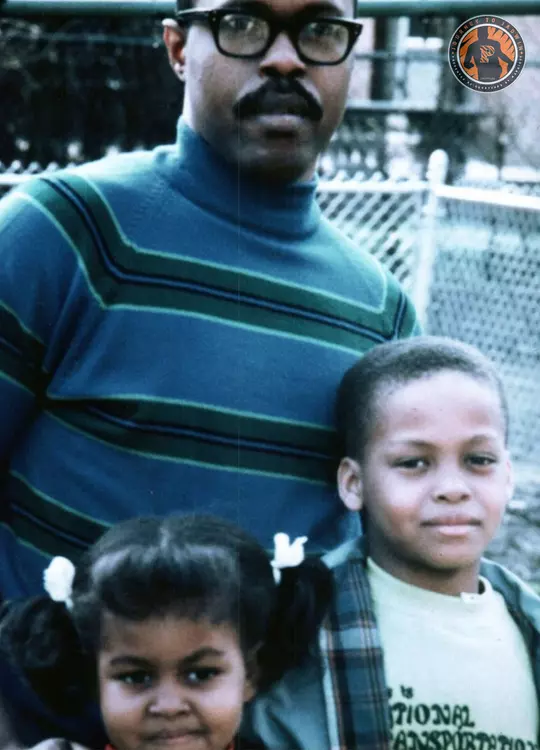
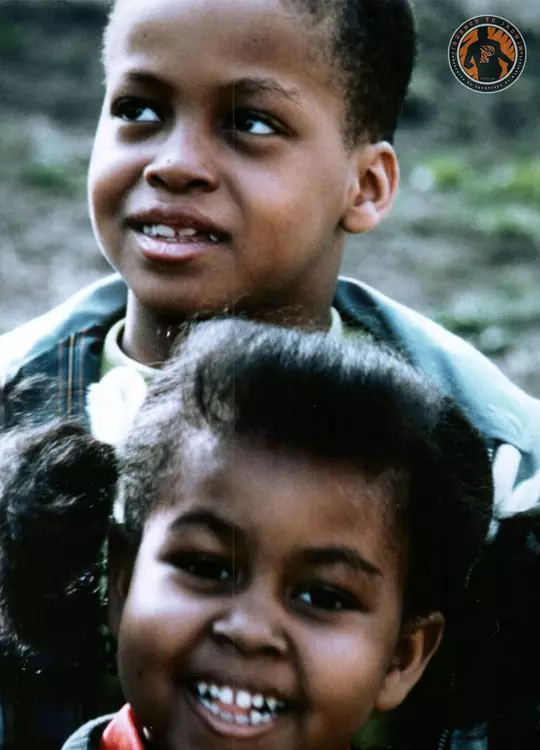
“He wasn’t a basketball player, he was a swimmer and a boxer,” said Robinson. “He was a decent athlete growing up. As the story goes, my dad had multiple sclerosis from the time I can remember. He walked with a limp going forward and it progressively got worse. I never saw him really play basketball, but he was out on the court with me the first few times I played.”
Robinson learned important and powerful life lessons from his father at a young age as he encouraged him to participate in a multitude of sports like baseball, football, tennis and ice hockey.
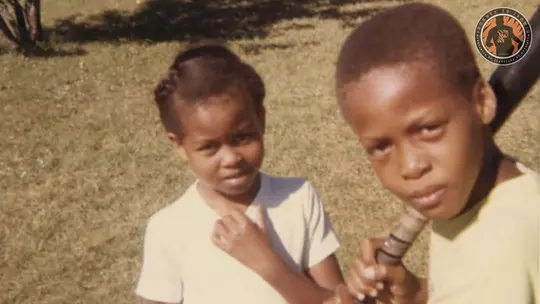
“We’d be out on the court playing and he was playing as if he was able-bodied even though he wasn’t,” explained Robinson. “I remember seeing him take a hard fall trying to go after a ball, that was really the first time I realized wow, my dad is really handicapped…He never once acted like he couldn’t do it with me."
That was a real lesson in not only character, but it was a lesson in courage and a lesson in not letting your limitations holding you back from doing something you want to do. It never held him back from being a great parent.Craig Robinson
At the age of nine or ten, Robinson would play organized basketball for the first time. He quickly encountered two men who would become important basketball influences; Bob Hambric, the coach of his biddy basketball team who went on to coach at Chicago basketball powerhouse Simeon High School along with Johnnie Gage.
“Coach Hambric was real tactical, teaching you how to play the game skill-wise as a coach,” said Robinson. “Johnnie Gage really taught me about the strategy of winning games and doing things the other team couldn’t combat, he was a very strategic coach and a very motivational coach. Hambric was on the south side of Chicago and Johnnie Gage was on the west side of Chicago, I had the best of both worlds. Those were considered the two places where all of the best basketball players were from.”
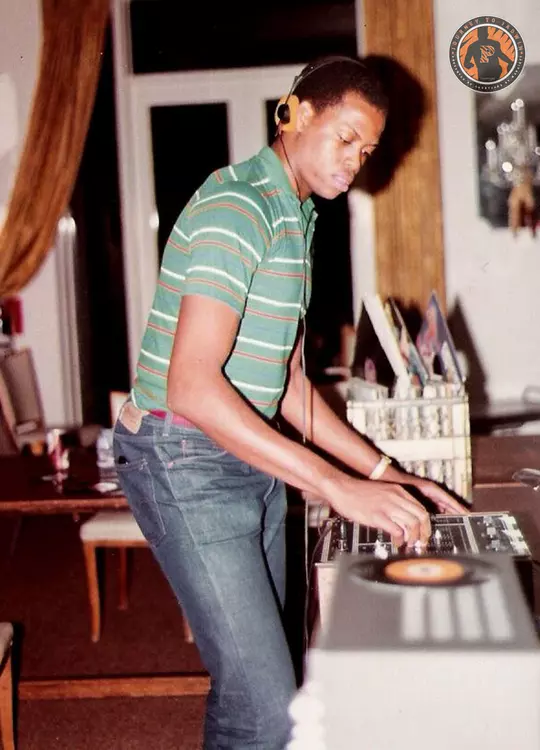
Growing up in the basketball hotbed of Chicago, Robinson grew up playing both with and against some of the greatest players to ever play the game.
“When I was playing on the team with Bob Hambric, that was the Chatham YMCA and those were the early AAU teams,” said Robinson. “We’d play against the Martin Luther King Boy’s Club and that was where Johnnie Gage coached and where I ended up playing."
That team had Isiah Thomas, Bernard Randolph and a bunch of guys who ended up being really good ball players. I have memories of playing them in tournaments all over Chicago and we would take turns beating each other.Craig Robinson
“I eventually went to play on a team with Isiah Thomas,” proclaimed Robinson. "We travelled to New Orleans to play in the national biddy basketball tournament together, where unbeknownst to me at the time, we lost to a team called Riverside Church from New York. Their star player was Doug Mills, Steve Mills’ younger brother. Before I even got recruited to Princeton or knew about Princeton, I played against Steve Mills younger brother in New Orleans at a tournament when we were 12 years old.”
Robinson was loving the game of basketball and living in the moment and did not initially comprehend the elite level of talent he was surrounded with.
“You didn’t know how players developed back then, we were just playing because we loved to play and had fun,” explained Robinson. “You realize as you get older than you’re playing against some of the best guys to have played basketball not only in Chicago, but nationally. It helps you get better faster.”
As Robinson continued improving and applied the lessons he learned from Hambric and Gage on the court throughout his youth, a choice had to be made heading into high school. His parents did not let him play football in high school and with basketball becoming a year-round commitment, it left no time for baseball in the spring.
There’s very little that’s predictable about basketball and you’ve got the beauty of being able to play on a team, but you’ve also got the ability to be individualistic from time-to-time.Craig Robinson
“You’ve got the best of both worlds,” said Robinson. "I loved the camaraderie of the smaller team, but I also loved the way the game was played. I know its cliché to say it’s sort of like ballet, but you had to be able to be somewhat agile to play. It wasn’t just a brute force type of game.”
After he decided on basketball, Robinson became even more of a student of the game. During that era, it was hard to follow the NBA outside of your local team but thankfully for Robinson, he was able to watch a pair of players who piqued his interest.
“The Bulls had a guy by the name of Reggie Theus on the team who was a 6’7'' guard,” explained Robinson. “He was a really big, good-sized guard. He was one of my favorite players. The Bulls played the Milwaukee Bucks and that game seemed to be on TV all the time, the Bucks were good. Marques Johnson was the other person, both big guard types and could play guard or forward. Could handle the ball, did a lot on the court and could play defense. Those were two of my favorite players to watch when I was growing up.”
All of the influences and experiences from the early stages of Robinson's life, including studying Theus' and Johnson's games, paid off throughout high school. His Mount Carmel team went on to win the Regional Championship his senior year, but it was at a camp in the summer before his senior year called Athletes for Better Education ran by Arthur “Chick” Sherrie, a Princeton grad, that he first got on Princeton’s radar. He found out that Robinson was a player who had good grades and Tony Relvas, one of the Princeton assistant coaches, was at the camp and saw him play.
Robinson had the opportunity to test himself against Chicago’s best players at that camp.
“It was an invite-only camp and all the top players were there,” proclaimed Robinson. “Terry Cummings was there, ended up in the NBA, Teddy Grubs was there, Isiah Thomas was there, Glenn ‘Doc’ Rivers was there, all these guys who ended up in the NBA.
I was there and made the All-Star team, my whole college recruitment started off at that camp…You didn’t know you were good until you played somebody better than you were and were able to hold your own.Craig Robinson
As Princeton became more and more of a realistic option for Robinson, he began to do his research on the school. With no internet, Robinson researched Princeton in an encyclopedia, asked people about the university and tried to see if there was anybody from his high school who had gone there, which there wasn’t. Robinson’s father would eventually be convinced by Johnny Gage that Princeton was where his son should go.
While Robinson’s father knew that was the best choice his son could make, it took Craig longer to come to that realization as he also had an offer from the University of Washington that he felt strongly about.
John Rogers hosted Robinson on his visit and despite the fact they lived three miles apart on the south side of Chicago, they had never met or crossed paths on the court. It did not take long for Robinson to realize just how special Princeton is.
It was the feeling I got from the people who were there, the players on the team. I met John and Steve (Mills) and they made me feel extremely welcome, the basketball was for real…When you start talking to people who had gone to Princeton and hear what they’re doing, it is absolutely impressive.Craig Robinson
Robinson distinctly remembers the conversation he had with his father when he told him he had made his choice. Sitting directly opposite him at the dinner table, his mother was cleaning dishes at the time.
I said well I actually like Pr- and I was saying the P-R out of Princeton, he slaps his hand on the table and said 'fine, you’ll go to Princeton.' That’s how I made my decision.Craig Robinson
Robinson’s career at Princeton became the stuff of legend. Along with his three Ivy League Championships and his two Ivy League Player of the Year awards, he scored 1,441 career points, pulled down 560 rebounds and blocked 97 shots. Robinson also gives credit to Pete Carril for developing his multi-faceted game and taking it to the next level.
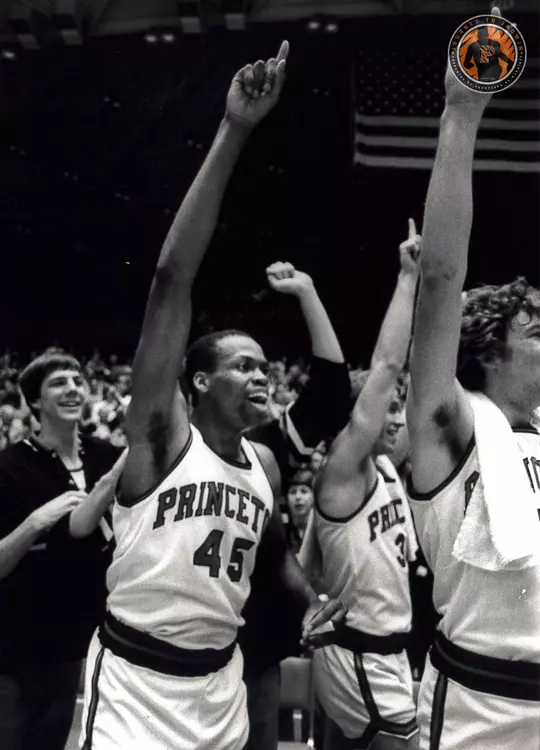
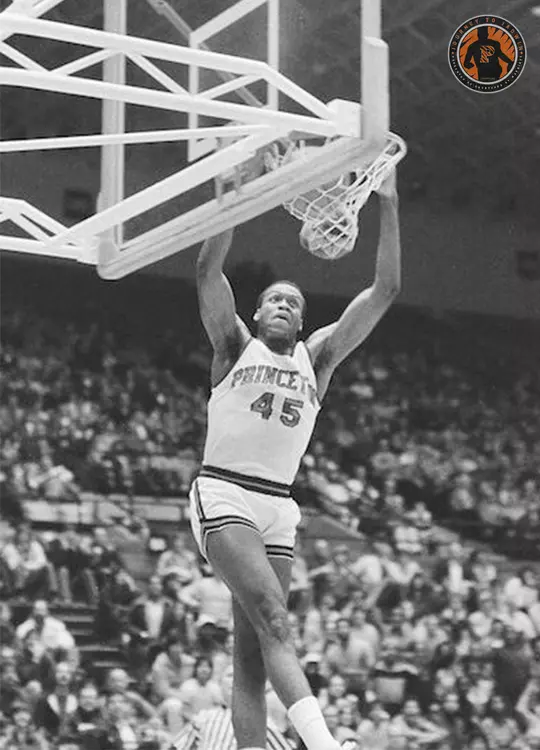
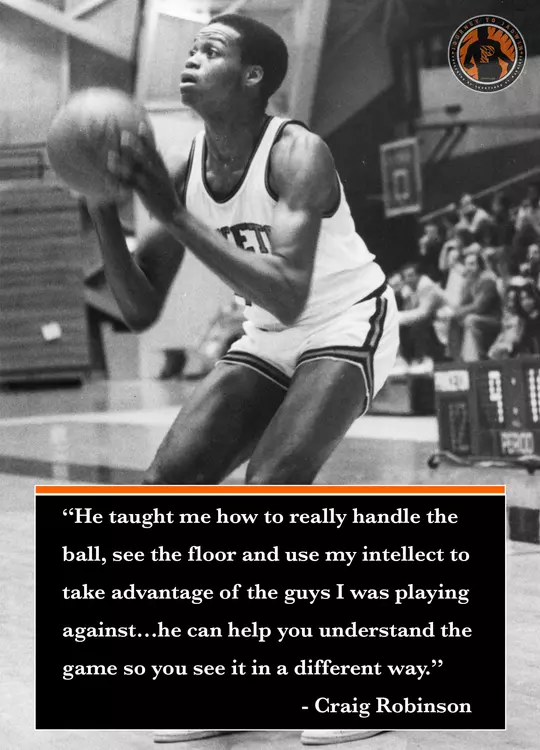
Naturally, Robinson has many treasured memories from his time at Princeton and lists his favorite as being on a successful team.
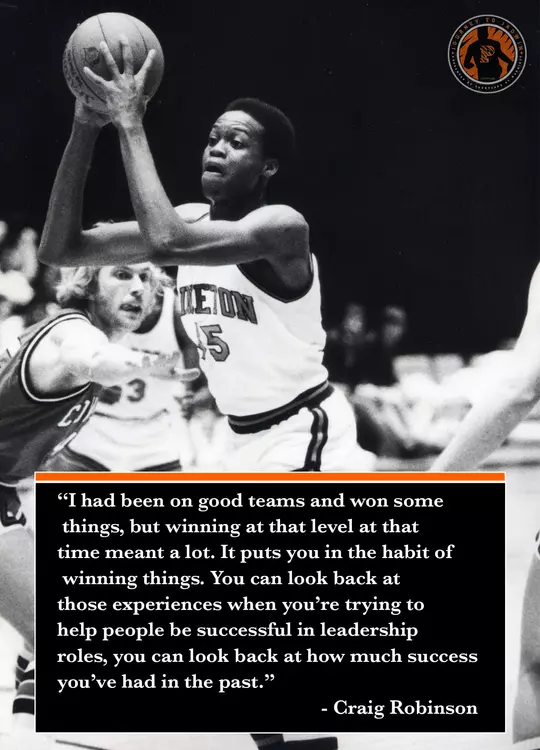
Post-graduation, Robinson was drafted by the Philadelphia 76ers in the fourth round of the 1983 NBA Draft. He would go on to play for the Manchester Giants of the British Basketball League for two seasons prior to returning home and working as a bond trader for 14 years. When he decided he wanted to return to his passion, basketball, he joined Bill Carmody’s coaching staff at Northwestern as an assistant, where he coached alongside Franklin C. Capon-Edward C. Green ‘40 Mitch Henderson ’98. Robinson would go on to serve as head coach at both Brown University and Oregon State University, before becoming a college basketball analyst for ESPN and working in the front offices of the Milwaukee Bucks and the New York Knicks.
Along with those post-Princeton accomplishments, Robinson also had success on the 3-on-3 basketball circuit, an accomplishment he is immensely proud of.
“Competing in the 3-on-3 tournaments with John Rogers, Arne Duncan, Mitch Henderson, Kit Mueller, all former Princeton players except Arne,” said Robinson. “Gabe Lewullis played with us, Sean Jackson. We thought we were successful at Princeton, we were extremely successful in the 3-on-3 world."
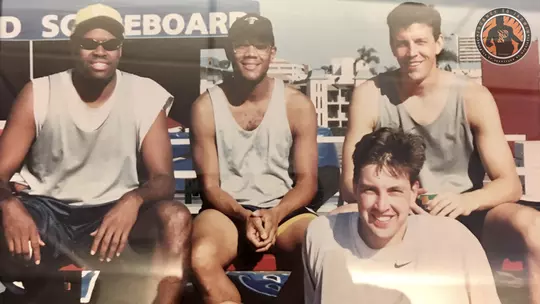
To be able to have that type of success on the basketball court at that late stage, it was a lot of fun.Craig Robinson
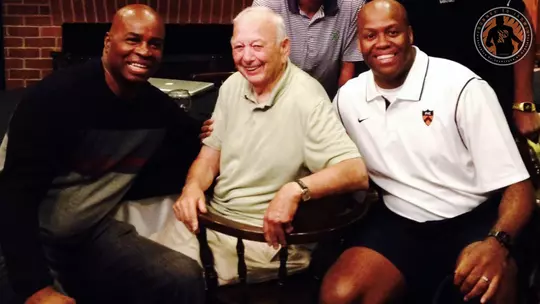
Robinson is thankful for many things at Princeton, including being elected to the Board of Trustees in 2018.
Coming from the south side of Chicago where I did, it’s really an honor to be still serving and part of Princeton, doing my bit to serve humanity.Craig Robinson
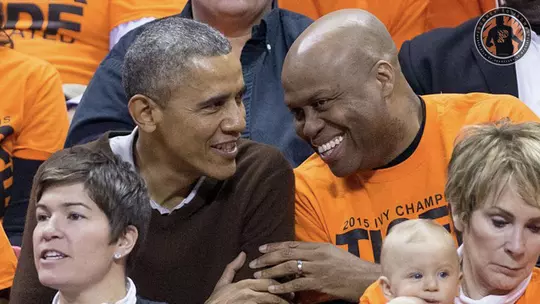
His daughter, Leslie Robinson, also played basketball at Princeton and was a two-time All-Ivy League honoree. Drafted 34th overall by the New York Liberty in the 2018 WNBA Draft, Robinson is equally thankful his daughter was able to have the same incredible experience he did.
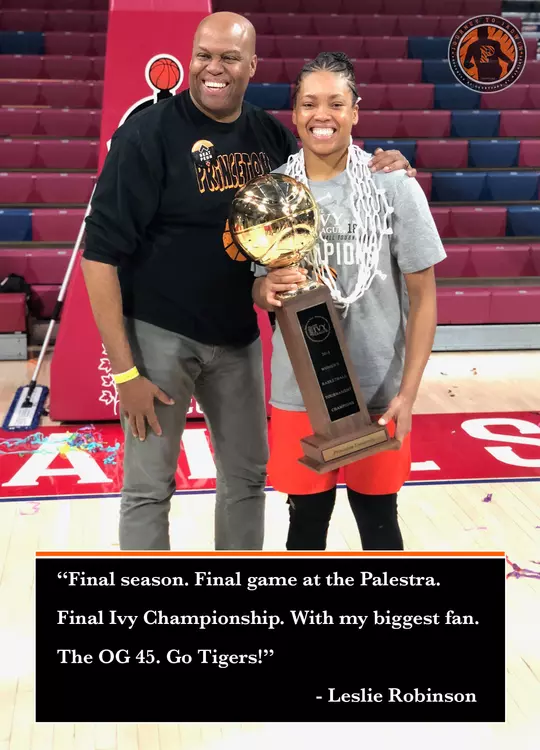
I’m mostly thankful because it unlocked a part of me I didn’t realize was there. I tell people all the time, I was a good student but I wasn’t a great student. Princeton, it’s like playing against good competition; it’s the same thing intellectually. Princeton gave me the chops to make me confident enough to know I could play with anybody intellectually, that’s what I’m most thankful for.Craig Robinson
You can connect with the Courtyard Princeton online at Marriott.com well as on Facebook and Instagram.

